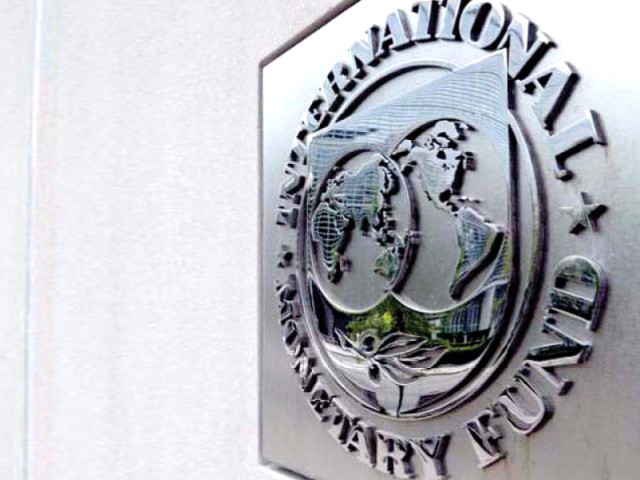Debtor’s obligations: Foreign goods suppliers seek payment guarantees
Pakistan to repay IMF $383m today from fast falling foreign currency reserves.

With fresh payment, Pakistan will have returned a total of $3.8 billion to the IMF out of $7.8 billion that it borrowed under a bailout programme, signed in November 2008. PHOTO: FILE
As the country is set to pay back SDR 258.4 million (approximately $383 million) today (Friday) to the International Monetary Fund, some isolated cases have emerged where foreign goods suppliers have questioned the ability of Pakistani importers to make timely payments due to fast depleting foreign currency reserves.
With fresh payment, Pakistan will have returned a total of $3.8 billion to the IMF out of $7.8 billion that it borrowed under a bailout programme, signed in November 2008. The $383 million will be the second-last tranche for the current fiscal year and the last installment of roughly $260 million (SDR 175.5 million) will be paid on June 28.
With that, Islamabad will have returned $2.6 billion in this fiscal year alone. Next year, it will pay back the biggest chunk of $3.6 billion.
The repayments to the IMF have taken a heavy toll on foreign currency reserves of the State Bank of Pakistan with foreign investment remaining negligible.
According to the SBP, until May 17, its net foreign currency reserves stood at $6.38 billion. The amount includes $2.7 billion that the central bank has pledged in forward contracts for import.
Despite the drop in foreign currency reserves, the incoming PML-N government has not yet decided on seeking a fresh bailout programme from the IMF. Its senior leader Sartaj Aziz has already stated that a new programme is “not desirable at least for three to four months”.

Sources in the banking industry revealed that uncertainty about the new programme has started unnerving foreign goods suppliers who are seeking confirmation of letters of credit. They are expressing doubts about ability of Pakistani importers to pay for imports on time.
So far, some suppliers from the United States and Europe have sought guarantees for LCs and they are charging the cost of guarantee from the importer by adding it to the cost of goods.
The confirmation of LC is sought only when there is a substantial risk of default on foreign payments. After the 1998 nuclear tests by Pakistan, foreign suppliers sought LC confirmation, which was provided by international banks like the Asian Development Bank and Citibank.
“Western and European banks are seeking LC confirmation from first-class banks only in cases where the amount is substantial and the Pakistani bank is smaller,” said Mirza Ikhtiar Beg, Chairman of Federation of Pakistan Chambers of Commerce and Industry’s Standing Committee on Banking and Credit Finance.
He, however, said he did not know about any case where a payment guarantee has been sought due to depleting foreign reserves.
MNCs repatriate dividends
According to sources, multinational companies have also started repatriating hefty amounts in the shape of dividends. They do this on fears that the rupee may drop significantly against the US dollar because of a continuous fall in foreign currency reserves.
People associated with the banking industry said MNCs have posted huge profits in the past few years and now their managements are sending back the money to parent companies abroad before any deepening of crisis.
Portfolio investment is another area where a dollar shortage can create problems, they said.
SBP officials were not immediately available for comment on issues of LC confirmation and dividends sent home by MNCs.
In 10 months of the current fiscal year, the current account deficit stood at $1.4 billion or 0.7% of gross domestic product.
The deficit looks like within manageable limits, but with the country’s financial problems, officials said, this small gap can take a toll on foreign currency reserves by the end of fiscal year in June.
Published in The Express Tribune, May 24th, 2013.
Like Business on Facebook to stay informed and join in the conversation.



















COMMENTS
Comments are moderated and generally will be posted if they are on-topic and not abusive.
For more information, please see our Comments FAQ